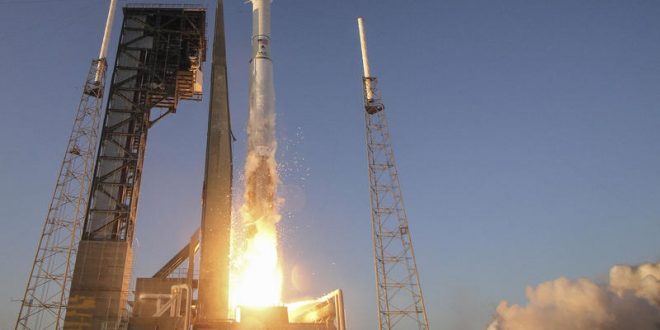The OSIRIS-REx spacecraft was successfully launched from Cape Canaveral on a trip to the asteroid Bennu.
Bennu may contain the molecular precursors to the origin of life and the Earth’s oceans.
The voyage will take seven years.
It took off from Cape Canaveral just after 4 p.m. Tucson time.
Hundreds of people gathered at The University of Arizona to watch the live feed of the launch.
Student, Daniella Gutierrez, said she was excited to be a part of a university that is moving research forward.
“It’s amazing to know our school is making a big impact in the world,” said Gutierrez.
The University’s Associate Vice President of Research, Neal Armstrong, said the mission enhances the university’s reputation.
“We are going to be thought of competitively when we go after other missions,” he said.
The University also led the mission to Mars that first discovered ice. Armstrong believes scientists will accomplish more scientific feats on Mars in the coming years.
“I think we are going to get to Mars in my lifetime and I think the U of A is going to play a lead role in many of those missions,” said Armstrong.
Osiris-REx will return in September 2023.
Agencies/Canadajournal
 Canada Journal – News of the World Articles and videos to bring you the biggest Canadian news stories from across the country every day
Canada Journal – News of the World Articles and videos to bring you the biggest Canadian news stories from across the country every day



